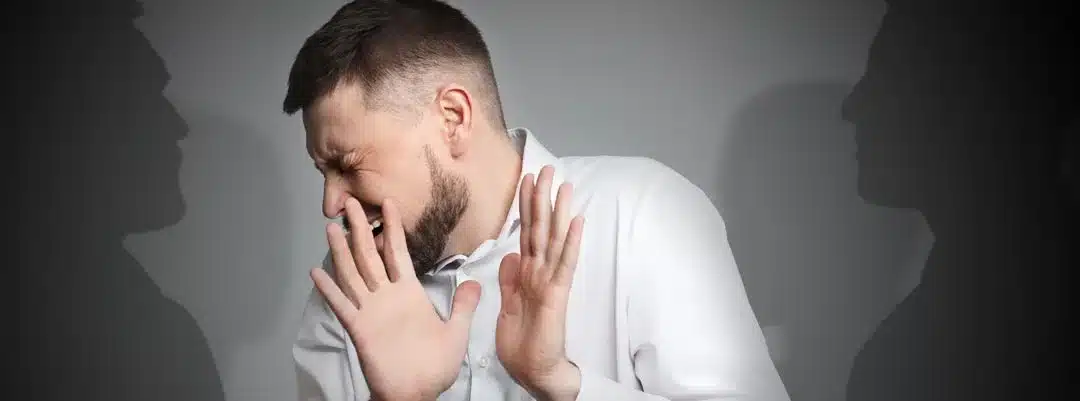A Deep Dive Into Psychedelic Hallucinogens
Whether good or bad, drugs can have a huge impact on our health. Unfortunately, too many people end up using drugs irresponsibly, and it can do a lot of harm. In the past year, almost one in three adults had either a substance use disorder or a mental illness.
As useful as drugs can be, you should never use any without having a good understanding of what they do and the issues they can lead to. This doesn’t mean just looking at the desired effects, but also any side effects and other risks. There are a lot of drugs that make you hallucinate, and some of these can be quite dangerous.
Let’s take a closer look at these drugs so you can get a clearer understanding of them and make better-informed decisions about what you should and shouldn’t take.
What Are Hallucinogens?
There are various types of hallucinations, and they all involve an individual perceiving something that doesn’t exist. While these are most commonly associated with sight, they can affect any and all of the five senses.
Hallucinogens are drugs that typically cause people to have hallucinations. On their own, hallucinogens can have various side effects. Taking multiple medications at the same time can exacerbate these side effects by a significant amount.
Common Short-Term Effects of Hallucinogens
In terms of drug side effects, there is always a degree of variance. The exact side effects will vary from person to person, and they’re different for every drug. With that in mind, there are some common short-term side effects that hallucinogens often cause, such as:
- Visual hallucinations
- Auditory hallucinations
- Agitation or anxiety
- Elevated blood pressure
- Increased heart rate
- Nausea
- Vomiting
- Sweating
- Loss of appetite
These can all be quite severe but should pass after not too long if you stop taking any drugs you’ve consumed.
Common Long-Term Effects of Hallucinogens

Long-term side effects of medications or drugs like LSD are typically not so well understood. In most cases, people are unlikely to suffer from long-term side effects from a single use (or very few uses).
With excessive use, however, the chances of suffering from long-term side effects increase. Some of these include:
- Flashbacks
- Persistent psychosis
- Hallucinogen persisting perception disorder (HPPD)
Along with these side effects, one of the biggest concerns with continued drug use is dependence. This can lead to a huge array of health issues, and it’s difficult to recover from addiction without the proper help.
Talk therapy and behavioral counseling are common types of treatment for hallucinogen treatment. Some other medications can also help manage the symptoms of HPPD.
For those who need it, AHCCCS insurance benefits for rehab can provide healthcare programs to low-income residents in Arizona. This includes medical, behavioral health, and long-term care services. Purpose Healing Center is also dedicated to helping those who suffer from drug and alcohol addiction.
Drugs That Make You Hallucinate
Many cultures have used different types of hallucinogens over the years. Drug abusers often become addicted and require professional assistance to kick their drug dependencies. These days, there are several addictive drugs that can cause hallucinations.
Acid
Acid (also known as lysergic acid diethylamide) is a chemically synthesized hallucinogen. It’s developed from a mold that grows on rye grain called ergot.
Acid gained significant popularity in the 1960s but was quickly made illegal. Despite that, it remains one of the most popular hallucinogens in the world to this day.
It can cause colors, sounds, and objects to seem distorted and make you feel euphoric and energized. This makes it a popular drug of choice for partygoers. Unfortunately, acid can have negative effects such as making someone feel:
- Confused
- Suspicious
- Panicky
- Overwhelmed
- Anxious
- Frightened
It typically kicks in within less than two hours, and the effects tend to last for up to 12 hours. If someone takes LSD when they’re depressed or in a bad mood, it can exacerbate these feelings significantly. People have even been known to harm themselves as a result.
Mescaline

Mescaline has similar effects on the body as LSD. It’s another naturally occurring psychedelic substance and is also plant-based. It comes from several cactus species, with the most well-known of these being the peyote cactus.
Peyote itself is a Schedule 1 drug, and therefore completely illegal. There is one exception to this, however; these controlled substance laws don’t apply to peyote when it’s being used during religious ceremonies in Native American Churches.
As such, people can legally manufacture and distribute peyote to the Native American Church. To do so, however, they need to obtain an annual registration. They must also abide by all other legal requirements, so they cannot legally distribute it to anyone else.
It can cause a ‘dream-like’ state in users as well as significant changes in visual perceptions. Auditory hallucinations are also possible, but they’re less common. In bad cases, it can cause vomiting, headaches, anxiety, and even diarrhea.
As it affects a user’s perception, they can become a risk to themselves and others. This tends to be more likely if someone takes it when they’re depressed, worried, or in a bad mood. People often chew the button-shaped seeds which can cause effects for around 12 to 18 hours, but this can vary depending on how much is consumed, and if the user has taken any other drugs.
Dimethyltryptamine
Typically referred to as DMT, this is a naturally occurring plant-based drug (sometimes called ayahuasca). It’s extracted from the bark and nuts of various trees native to Central and South America.
It’s known to give users an intense ‘trip’, distorting the world around them. Things like colors, sounds, objects, and time can become strange and distorted. Some users even seem to have out-of-body experiences.
There can be some fairly intense negative effects. For example, some users report being unable to move, or feeling like they’re going through near-death experiences.
Compared to other hallucinogens, the effects of DMT don’t last very long. It typically wears off after just an hour. Excessive use, however, can still cause long-term side effects.
As a chemical hallucinogen, DMT can increase your blood pressure and heart rate, cause nausea and vomiting, and can be even more harmful to people with pre-existing heart conditions. It can also have effects on people’s mental state, causing flashbacks, suspicion, and paranoia.
Ololiuqui
This psychedelic comes from the leaves of the morning glory flower, as well as some other plants such as Hawaiian baby woodrose and elephant creeper. These plants all come from Central and South America, where the drug has a history of use for religious and spiritual rituals (not unlike mescaline).
Unlike mescaline, however, ololiuqui isn’t a controlled substance in the US. The drug (typically referred to as LSA in the States) has a somewhat contradictory and confusing legal status.
Possession of plants that LSA can be extracted from is legal. These plants can often be found online or in regular garden stores, so they’re easy to obtain. Despite that, it’s still illegal to extract, consume, distribute, or purchase LSA as a drug in the United States.
LSA typically has similar effects to LSD, but the side effects are often more severe. They typically include:
- Increased blood pressure
- Rapid heart rate
- Dilated pupils
- Paranoia
- Anxiety
- Stomach cramping
- Gas
- Diarrhea
The lack of regulation makes it easier for people to obtain, but these side effects make it arguably more dangerous. While it’s uncommon, LSA abuse can be fatal. This is usually the result of self-harm due to the agitation that the drug can cause.
Psilocybin
Psilocybin is a substance found in specific types of mushrooms which are commonly referred to as magic mushrooms. There are plenty of species that fall into this category, and the legal status of them isn’t entirely clear. This is (in part) because they can grow all over the world.
The freshness, season, and growth location can all impact how magic mushrooms affect people, and it’s difficult to tell how strong they are. They typically cause visual and audible distortions, as well as hallucinations. They may make a person feel energized, excited, and euphoric.
Some of the common negative effects include:
- Paranoia
- Vomiting
- Anxiety
- Panic
Like many other hallucinogens, negative effects can be a lot worse if these are taken by someone when they’re in a bad mood. Magic mushrooms can vary significantly in terms of their effects, side effects, and health risks.
Some can be highly toxic, even to the point of being fatal, so they’re not something that a person should consume without caution. The mixture of shrooms and alcohol, or other drugs, can also tax the liver or create other contraindicated side effects.
Ecstasy

3,4-Methylenedioxymethamphetamine (MDMA) is typically called ecstasy, and while it can produce hallucinogenic effects, it tends to be less pronounced. It’s typically taken for its stimulant and mood-enhancing effects, as these are more prominent.
Ecstasy is often used by partygoers for these reasons. It’s known to have the potential to cause some serious health risks such as dehydration, overheating, and water intoxication.
MDMA is consumed in various ways, with pills being one of the most popular. They’re often swallowed, but some people choose to crush them up and snort them.
Some also consume MDMA powder by dabbing it onto their gums or ‘bombing’. This is when it’s wrapped in cigarette paper and swallowed.
People tend to take MDMA because it makes them feel energized, happy, and ‘loved up’. As with other hallucinogens, it has some common negative effects such as paranoia and anxiety, and may even lead to panic attacks and states of confusion.
It can take anywhere from 20 minutes to over an hour to kick in, and the effects generally last for about two to four hours. After taking MDMA, many people experience a ‘comedown’ the next day. This leaves them feeling down and low in mood, and this can sometimes last for several days.
It’s difficult to predict the strength of ecstasy pills. As a result, it can be very dangerous if people don’t take it with caution.
It can have various negative health impacts, such as:
- Colds and sore throats
- Liver, kidney, and heart problems
- Overheating
- Dehydration
People with heart conditions, blood pressure problems, asthma, or epilepsy can react very badly to ecstasy. Drinking too much water after taking ecstasy can also pose a risk as it can affect the salt balance in the body.
Medications That Can Cause Hallucinations
Most people are aware that the drugs listed above can be very dangerous. Unfortunately, they’re still quite prevalent.
Something that many people don’t realize, however, is that there are more common medications that can also cause hallucinations. Some of these include:
- Antidepressants
- Antipsychotics
- Muscle Relaxants
- High Blood Pressure Medications
- Antibiotics
- Antiseizure Medications
- Parkinson’s Medications
- Antihistamines
- Pain Medications
- Corticosteroids
You may take some of these at some point to help with other issues you’re having. You might also be recommended or prescribed such medications by doctors.
The majority of people who take these medications won’t experience hallucinations or negative side effects, but it’s always a risk. If you take any of these types of medications and you start experiencing hallucinations or any other issues, it’s not something to ignore.
You should tell your doctor about this immediately so they can ensure you’re not at any risk of health problems. It’s important to be careful, as even prescription drugs can lead to addiction.
Depending on the severity of the situation, you might want to ask a friend or family member for help. If you need to see a doctor, for example, and you’re experiencing hallucinations, you should never drive yourself.
Like other drugs, any of these can affect people differently. Overconsumption and abuse are far more likely to cause problems, so you should never exceed the recommended dosage of any of these medications.
Recover From Substance Addiction at Purpose

Several drugs that make you hallucinate can be very harmful when abused. Far too many people fall into a state of addiction, and this can be devastating for their health, relationships, and lives as a whole.
Purpose Healing Center is a leading drug and alcohol rehab center based in Phoenix and Scottsdale, Arizona. We work to help people recover from addiction and get their lives back. We can develop customized addiction treatment programs to make sure all of our patients get the help they need.
Our admissions staff is available 24/7, so you can call us at any time. Reach out to us at 480-579-3319 or visit our contact page if you or anyone you know needs our help.



